Here’s How You Use Intuition, Based On Your Personality Type
Did you know that intuitive personality types aren’t the only ones who use intuition? We all use it. We all value it to some degree. Just as we all value sensing to a degree. Without using both sensing and intuition we would become unbalanced and unable to process the world we live in. This article is meant to shine a light onto some of the ways each personality type uses intuition, even if they aren’t an “N” personality type.
Not sure what your personality type is? Take our new personality questionnaire here. Or you can take the official MBTI® here.

Table of contents
Estimated reading time: 14 minutes
Here’s How You Use Intuition, Based On Your Personality Type
The ENFP
ENFPs are always on the lookout for emerging possibilities and potential in the world around them. “What could be done with this”, “How could this scenario unfold?”, “What’s the connection between this and that?”. Those are the questions they long to ask and answer. They envision how situations, objects, and information can be used to transform current reality. They have an innate need and desire to transform existing information by exploring every angle, every possibility, and every option available. “How can this be used in a new way?” is a way that they look at every procedure. They can seem like devil’s advocates because to them the answer is never linear, simple, or straightforward. There are always numerous ways to look at a situation, and everything needs to be seen in the context of its relationships and associations with other information and events. ENFPs want to “connect the dots” and see a situation from an outside, big-picture perspective. This ability to see unusual connections and associations can give them creative insight into problem-solving and deeper insight into seemingly simple situations. Find out more about ENFP intuition here.
The ENTP
ENTPs are on a constant quest to explore what could be. They like to create a series of verifiable links that form blueprints for patterns, potential, and possibility. As they take in concrete information in the present moment they create a stream of connections and possibilities that branch out into the future. They live in a constant pattern of tuning into the present to get more data, then tuning out of the present to see the big picture, find connections, and generate future outcomes. “What new things can I do with that?”, “How can I innovate to make this system more effective?”, “Is there a connection or angle I’m not seeing?”. These are the questions they are constantly asking themselves. Because of this way of thinking they are skilled at coming up with new ways to improve old tasks, and they are good at seeing a bigger context to a situation than other people might. Find out more about ENTP intuition here.
The INFP
INFPs value feeling over intuition, because Introverted Feeling (Fi) is their dominant function. However, intuition is the lens through which they take in information. They love to see emerging possibilities that coincide with their values. They like to imagine complex, vivid experiences and realities that could happen in the future. They can often be pioneers for new initiatives and they like to stay open to new ideas and possibilities so that they can be creative and innovative. They use their intuition to be inventive in whatever art form they pursue; whether it’s writing, painting, crafting, or even entrepreneurship. They enjoy thinking outside the box to find unusual connections, ideas, and solutions. They have a strong focus on the future as well as a nostalgic eye for the past. They enjoy innovating with the present to create the ideals they wish for in the future. Find out more about INFPs here.
The INTP
The intuition of the INTP gives them an imaginative insight into problems and possible solutions. They are able to see seemingly impossible connections to issues that are puzzling and complex. They apply intuition to crisis situations and logical dilemmas; staying detached to see the problem from multiple angles and vantage points. They try to step back and see how many different scenarios could unfold before settling on just the right one. Their intuition gives them an innovative spirit and a restlessness and dis-contentedness with routine. “How can we do this in a better way?”, “How can we change this routine task?”, “What other options am I not seeing?” these are questions INTPs ask themselves. They want to be sure they’ve looked at any problem or procedure from an outside-the-box, big-picture perspective before they zone in on a solution. Find out more about INTPs here.
The INFJ
INFJs go through life with an unpredictable sense of “knowing” and an uncanny sense of how events will likely unfold. They are always looking for patterns, themes, underlying meanings, and hidden motives. “What else is going on here?”, “What’s behind this?”, “Where will this lead?”, these are the questions that INFJs are always asking. The intuition that INFJs (and INTJs) use is the most abstract of all the mental processes. It is very focused on reading-between-the-lines, seeing everything in the most complex way possible, and trying to find cosmic significance in everything. INFJs tend to feel like they live their life “zoomed out” and somewhat detached from their surroundings. They are so focused on what’s unseen, what’s hidden, what will play out someday, that they can feel a little detached from the present moment. However, their ability to stay tuned into these hidden, abstract possibilities gives them revelatory insights and can make them very visionary. Find out more about INFJ intuition here.
The INTJ
INTJs are always trying to understand the implications, nuances, and scope of a situation or problem before moving into action. They have eerily accurate insights into how situations and events will unfold, and this vision makes them skilled at strategic planning. They have flashes of inspiration that come at unpredictable moments. It’s as if they’re searching along a hazy path and suddenly experience a bolt of clarity and a strong sense of knowing. With time and reflection, they can understand where their insight came from, but it usually isn’t in the immediate moment. INTJs have a skill for seeing the shape of possible futures without feeling restricted by concrete data, the time, or their location. They are talented at seeing the deeper, unseen meaning behind things and the symbolic resonance of everything around them. They are constantly moving forward and backward in time, trying to see what will happen in 5,10, or 100 years from now. Their visionary, insightful way of looking at the world helps them to be perceptive and trailblazing leaders. Find out more about INTJ intuition in this article.
The ENFJ
ENFJs are all about seeing human potential and being catalysts for change and improvement in communities and cultures. Their intuition gives them an eye for the potential of people and how to spur them to a higher purpose. They have a gift for grasping concepts, symbols, and underlying meanings. They use this gift to understand people deeply and inspire them towards a particular goal or outcome. The more mature and well-balanced ENFJs are, the stronger and more accurate their insights become. In times of quiet reflection, their imagination comes alive with ideas for the future and how to make these ideas a reality. They are also skilled at not “sweating the small stuff” because they keep their eye on the bigger picture and context of everything and are unlikely to get sidetracked with details. Find out more about ENFJs here.
The ENTJ
ENTJs have a strong focus on creating efficient plans and strategies for the future. Their intuition helps them to see new ways to reach long-term goals and it helps them to envision a plan most likely to succeed. When ENTJs aren’t working, they enjoy delving into theoretical topics and philosophical ideas as a way to stimulate their intuition and grasp the deeper meaning of life and the implications of everything they experience. They gravitate towards conversations that have meaning, depth, and vision, and tend to tune out of conversations that focus primarily on details or experiences. Small talk is especially boring and frustrating for them to have to listen to. Their intuition gives them a desire to know the “dance of the universe” and the symbolic meaning behind things. When they have an insight into something, they are usually very sure of it and are unlikely to change their view unless presented with substantial logical evidence.
The ISFP
ISFPs are more at home in the world of sensing than the world of intuition, but intuition still plays a major role in their lives. As children, ISFPs may get sudden hunches or feelings about the future, but they will distrust them in favor of what seems tangible or factual. As they get older they find themselves more drawn to symbolic meaning and underlying patterns. They can enjoy spending time alone imagining future scenarios or courses of action. They like to conceptualize new ways of seeing a problem and are often drawn to the mysterious and archetypal. They often have an imaginative, abstract tone in their creative and technical projects and can become quite singular in their focus when they have a plan for the future. Their intuition will never be as natural to them as their sensing process, but it provides dimension to their personality and gives them a visionary outlook on life. Discover more in our ISFP personality profile.
The ISTP
ISTPs are more at home with factual, tangible data than the world of intuition, but it still plays a pivotal role in their lives. As children, ISTPs tend to distrust their hunches and insights, preferring to focus on facts and what they trust through their senses. As they get older, ISTPs can develop a strong sense that future changes will unfold in an unforeseen way. They tend to feel an irresistible pull to make their vision or “hunch” become a reality. They can also be drawn towards mysterious or symbolic images or meanings, using them as a motivator to reach a goal they have for the future. Sometimes using intuition can feel unsettling for ISTPs because they prefer to deal with tangible data. Other times they can become highly immersed in intuition, focusing on imagery and symbols and exploring ideas that leave others puzzled and confused. The older and more mature ISTPs become, the stronger their intuition grows.
The ESFP
For the ESFP, sensing comes much more naturally than intuition, but it still plays a major role in their personality. As the inferior function, intuition can give them a sense of optimism about the future. They tend to get occasional “aha!” moments of insight or imagery about a possible future outcome that inspires them. Intuition can also be an area that they choose to suppress in favor of sensing. They may ignore all symbolism and future predictions they get as being unsupported by evidence. They may shrug off concerns about implications that are negative because their current path looks so enjoyable. ESFPs (and ESTPs) can struggle with “leaping before they look” because focusing on the long-term implications of their experiences and actions isn’t a natural preference, especially in early life. As ESFPs grow and mature, intuition usually becomes more honed and perfected. Often in their 50’s and 60’s, ESFPs develop a taste for the mysterious, archetypal, and abstract.
The ESTP
ESTPs will usually favor sensing over intuition, but it still has a pivotal role to play in their lives. ESTPs can get sudden “hunches” or flashes of insight about a plan or idea working. They can follow this insight with energy and vigor, latching onto an opportunity in the present that might lead to a positive future outcome. Sometimes, however, ESTPs can get so caught up in the excitement of the moment and the idea that they take action too quickly without really pausing to foresee all the consequences, implications, and strategies for realizing their vision. When they are young, ESTPs tend to suppress intuition, instead preferring to deal with facts and tangible reality. As they get older and more mature, ESTPs develop greater comfort with looking inward and can feel intrigued by the symbolic, archetypal, and mysterious. They can also find that dwelling on an image of the future inspires and motivates them to take action.
The ISFJ
ISFJs favor sensing over intuition, but it still has a major part to play in their lives. They often express their intuition as an ability to see creative connections through crafts and hands-on activities. They may look at an object, like a rock or a tree, and see many different ways to use it (“we could make a fairy garden!”, “we could build a treehouse!”). Usually, their intuition comes into play in some kind of tangible, creative activity. While ISFJs may desire to see hidden meanings and inter-connections, they usually see them as being too abstract to be realistic. They are likely to dismiss “hunches” or tangential ideas as nonsense or a waste of time. Facts and their own experience will always seem more trustworthy and secure to them. In early life, ISFJs can be very literal and prefer to work with what they know rather than try things in new ways. As ISFJs reach their 50s and beyond, they tend to become more open to toying with abstract concepts and relationships. They can become more open to spontaneity and exploring multiple meanings. Find out more about ISFJs here.
The ISTJ
ISTJs will usually favor sensing over intuition, but it still has a big part to play in their lives and how they see the world. They can have moments of visionary, outside-the-box thinking, especially when they feel stumped about a problem or plan. However, for the most part, they prefer to trust facts, their own experience, and tried-and-true methods over new, untested approaches. Many times they see abstract, hypothetical conversation as a waste of time or “nonsense”‘. They prefer things that are grounded in reality and evidence. As ISTJs reach older age, they tend to become more open to spontaneity, trying things in new ways, and seeing abstract connections and relationships. Brainstorming starts to feel more energizing to them and they enjoy following possibilities to see where they might lead. Find out more about ISTJs here.
The ESFJ
ESFJs, especially in mid-life, enjoy brainstorming and exploring new ideas and hidden meanings. The occasional hypothetical conversation and conceptual discussion can be very energizing in small to moderate doses. However, prolonged discussion in this area can start to tire them out as they seek to focus more on experiences and current events. In early life, ESFJs tend to distrust most of their hunches because they seem ungrounded in reality and therefore nonsensical. As ESFJs grow and mature they are able to catch glimpses of the hidden meanings behind things, the interconnections, and the future possibilities. At times, ESFJs can feel overwhelmed by a myriad of possibilities and can struggle with knowing the best path for their lives. As judging types they feel a compulsion to decide and move on with their lives, so they may just randomly pick one of the many options in their mind and grow to regret it later. They can also let their intuition get the best of them and see potential problems and obstacles that don’t actually exist. Overall, intuition can be both a blessing and a curse to the ESFJ. At times it opens their mind to innovative ideas and inspiring possibilities. At other times it distracts them from what’s real and can make them overly concerned about negative possibilities.
The ESTJ
ESTJs, especially in mid-life, tend to enjoy using intuition. They can find brainstorming sessions and conceptual discussion invigorating and inspiring. However, prolonged focus on the abstract can start to wear them down as they feel a compulsion to get back to more practical, current needs. In early life, ESTJs tend to distrust most of their hunches and the abstract connections they sense, seeing them as too ungrounded in reality to make sense. As they get older and more developed, ESTJs can develop a fascination with future possibilities and analyzing what could happen later in life. Their eye for possibility, blended with their logistical strengths, can make them strong planners. At times, ESTJs can feel overwhelmed by a myriad of possibilities and can struggle with knowing the best path to take. As judging types, they feel a compulsion to decide and move on with their lives, so they may just randomly pick one of the many options in their mind and grow to regret it later. They can also let their intuition get the best of them and see potential problems and obstacles that don’t actually exist. Overall, intuition can be both a blessing and a curse to the ESTJ. At times it opens their mind to innovative ideas and exciting possibilities. At other times it’s a distraction from what’s real and only serves to cause them stress.
What Are Your Thoughts?
How do YOU use intuition? Let us know in the comments!
Find out more about your personality type in our eBooks, Discovering You: Unlocking the Power of Personality Type, The INFJ – Understanding the Mystic, The INTJ – Understanding the Strategist, and The INFP – Understanding the Dreamer. You can also connect with me via Facebook, Instagram, or Twitter!

This article contains affiliate links.

Subscribe to Our Newsletter

Want to discover more about personality type? Get the inside scoop with Susan Storm on all things typological, along with special subscriber freebies, and discounts on new eBooks and courses! Join our newsletter today!


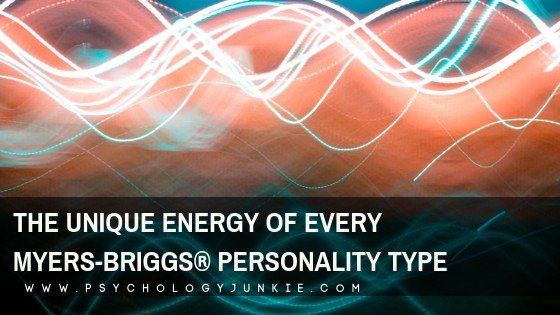
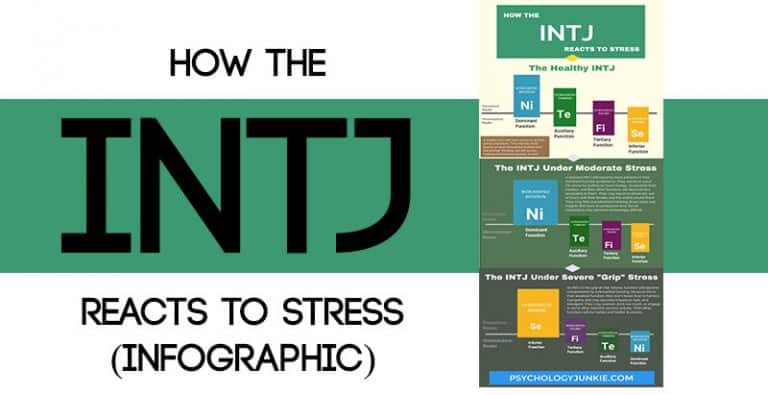
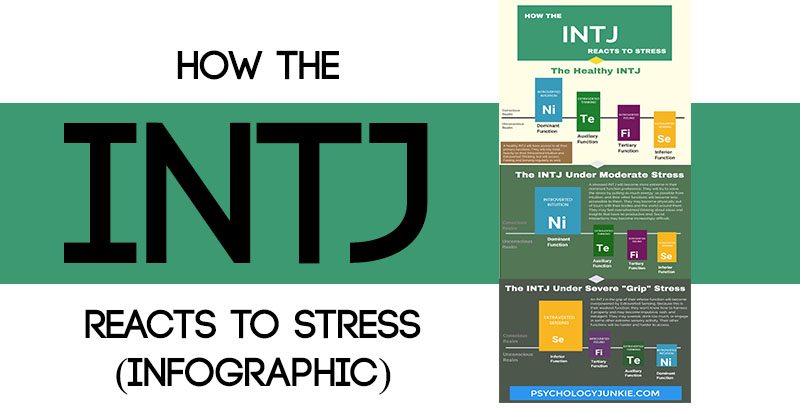


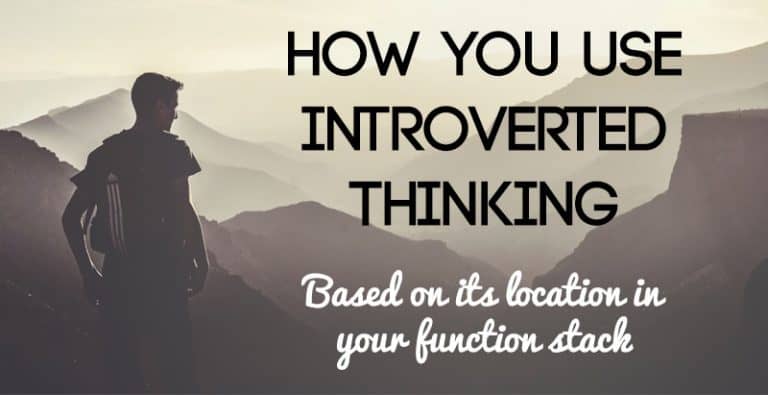
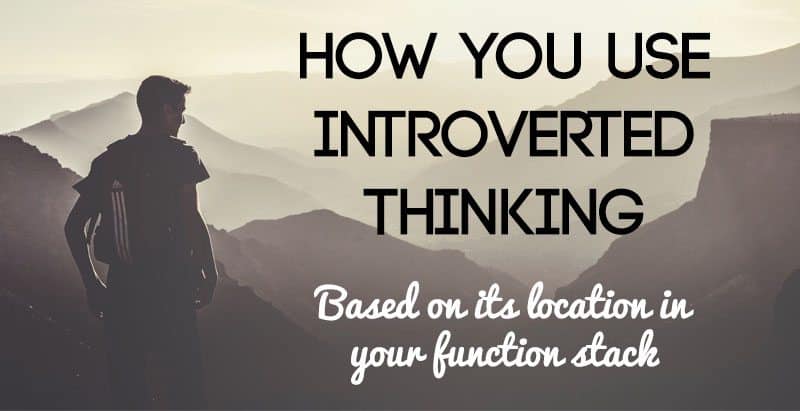
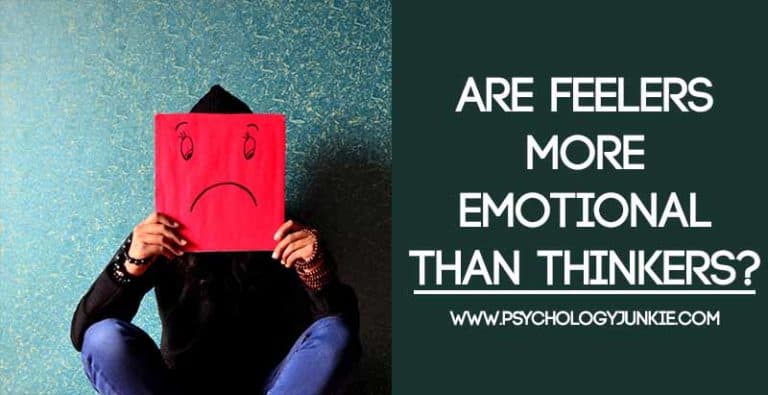



Hi Susan,
I hope you read this.I always test INTJ. However whilst I believe I was as a child and mid teens,I was definitely ENTJ up to my 50’s.
Illness PTSD and family issues have weighed heavily over the last 20 yrs.
So whilst I have 50 yrs of marriage mostly due to my introvert wife, I dont know what I am now.
I dont think it matters if you can communicate and care generally so thinking a lot and explaining a lot makes you rounded I believe.Anyone can succeed . Just make sure you read a lot of everything I say.
Terence.
I’m definitely either INTJ or INFJ, but the way introverted intuition is described bugs me because it’s not true of me. They’re described as basically psychic—knowing the future without being to explain how. I can read people because of body language and facial cues. I can predict the future based on cause and effect (if A, then B), though I’m not always right. I’m not psychic. I can explain how I reach every conclusion, and it doesn’t take a lot of thought to figure it out. In my opinion I’m using logic, or introverted thinking. But whenever I say this, people then say I’m not really an INTJ or INFJ. It’s frustrating. And it’s one reason why I don’t believe in the cognitive function part of MBTI. In MBTI, N is described as creative and philosophical and theoretical, all things I am. But in cognitive functions, NI is described as psychic, which I am not. And no, I’m not any of the extraverted types. I am most definitely either INTJ or INFJ.
Oops, sorry, i didn’t mean to direct my comment to you, terence. It was supposed to be just a comment on the article.
I love this post! It really helps me get a better understanding of what the sensing and intuitive functions actually are. You should do one like this for the thinking and feeling functions too – maybe even for the i/e and j/p traits as well. That would be so much fun to read! Thank you for all of the work you put into sharing what you’ve learned!